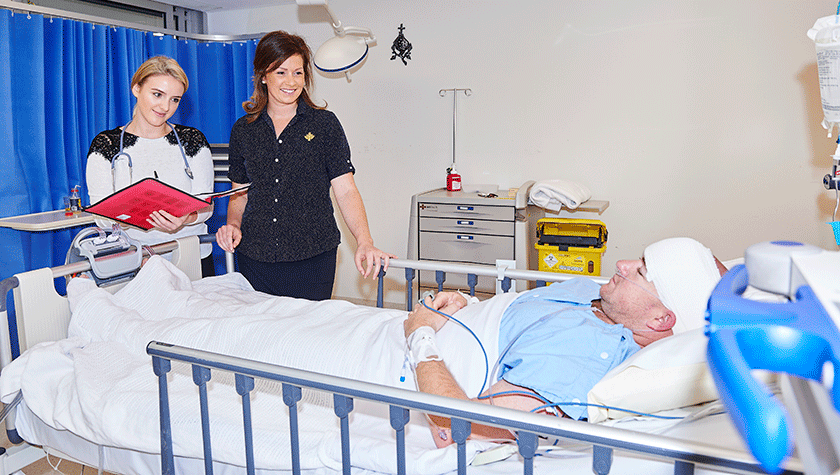- Our services
- Medical and surgical
- Intensive care
 Our services
Our services
- Medical and surgical
-
- Allied health
- Cardiac rehabilitation
- Falls prevention and balance
- Chronic disease management
- Exercise physiology
- Inpatient rehabilitation
- Nutrition and dietetics
- Occupational therapy
- Oncology rehabilitation
- Orthopaedic rehabilitation
- Outpatient rehabilitation
- Pulmonary rehabilitation
- Physiotherapy
- Reconditioning rehabilitation
- Speech pathology
- Social work
- Community and youth
- Healthcare at Home
- Self-funded care
Intensive care
Intensive care, also known as critical care, is provided for the sickest patients in hospital.

Patients who are admitted to an intensive care or critical care unit may need intensive monitoring to protect them from further deterioration, have a life-threatening illness or need treatment for serious injuries after an accident.
Our highly trained intensivists, doctors and critical care registered nurses provide around the clock care, with support from specialist equipment and medications.
Our experienced caregivers provide the best quality of care and liaise with a wide range of health specialists to provide holistic care for your loved one. We ensure you are kept informed and are included in health care decisions where appropriate.
Admissions
When you are admitted, we constantly observe you and provide specialised care. You may come directly from an Emergency Department, theatre or from another hospital ward.
In some instances you may be admitted as a high dependency patient if you need intensive observation, treatment and care.
Some of the most common conditions we treat include:
- acute respiratory distress
- heart attacks
- multiple organ failure
- sepsis.
Our services
Our specialist doctors and nurses have advanced training and experience in providing critical care.
They are supported by state-of-the-art equipment which works together to ensure you are provided safe and effective care.
Some of this equipment helps you breathe (ventilator) or tracks heart activity (heart monitor). Other machines may beep or make other sounds which let our doctors and nurses monitor your progress and identify if you need urgent attention.
Tubes may also be attached to provide vital fluids or nutrients and remove excess fluids.
Visiting
If your loved one is in intensive or critical care, they are very unwell but are in the best place possible to receive care from our team of experts.
As such we may restrict visitors to immediate family only or limit the number of visitors.
Please speak to our nurses to discuss visiting options.
You may be interested in...
